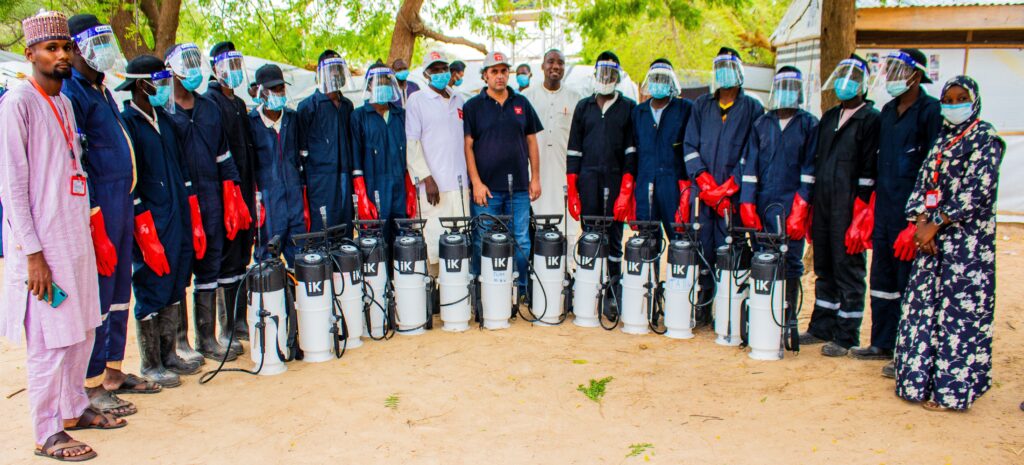In Borno State, Nigeria, malaria is the number one cause of morbidity and mortality, with peak disease burden during and immediately following the rainy season. Reported cases of malaria in Borno State increased by almost 10% from 279,389 in 2019 to 307,175 in 2020. While endemic, it is also clear from that malaria morbidity is most significantly experienced during the rainy season from July-September in Borno State. Fresh surface water from rainfall creates breeding grounds for the anopheles malaria vector, causing these spikes in recorded malaria rates. Transmission continues to increase annually, highlighting the urgent need for intervention.
To read the whole report, click here: The MENTOR Initiative Indoor Residual Spray & IEC 2021

Between February and July 2021, The MENTOR Initiative conducted IRS (Indoor Residual Spray) and IEC/BCC campaigns (Information Education and Communication and Behaviour Change Communication) campaigns targeting 386,538 people in Monguno, Maiduguri, and Jere. This included 116,537 Internally Displaced Persons (IDPs) across 12 camps and 58,000 host community members in Monguno, as well as 212,520 IDPs living in 17 camps in Maiduguri and Jere.

In order to implement successful IRS and IEC/BCC activities in the target locations, meetings were held with the National Malaria Elimination Programme (NMEP), State Malaria Elimination Program (SMEP), State Emergency Management Agency (SEMA), Borno State Agency (BSA), local community and religious leaders, Primary Health Care (PHC), Roll Back Malaria (RBM), LGA Chairman, IDP and host community leaders, camp coordinators/management, youth and women’s groups, and other key stakeholders. These meetings enabled MENTOR to effectively communicate what IRS is and how it helps those who receive it, establishing understanding and trust within the community, facilitating the monitoring and delivery of these programmes. Selected representatives from the target communities were recruited to deliver mass awareness campaigns to promote an understanding of IRS, malaria, and good hygiene practices. These campaigns utilised a range of communication techniques to convey the messaging as widely as possible to ensure that coverage exceeded the 80% rate required to provide strong community protection from malaria.
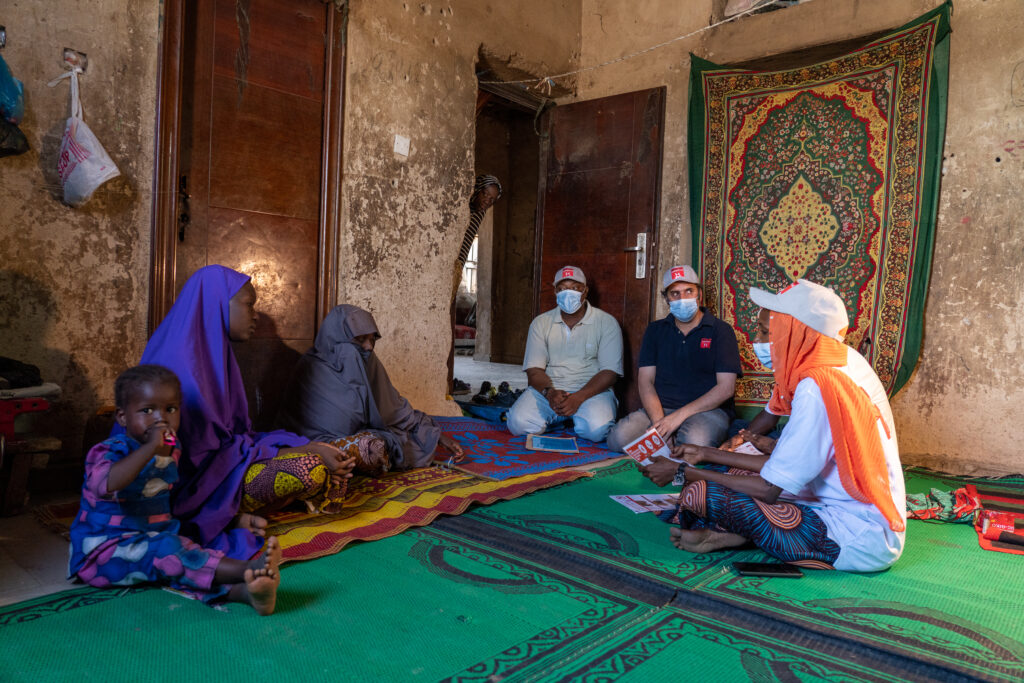
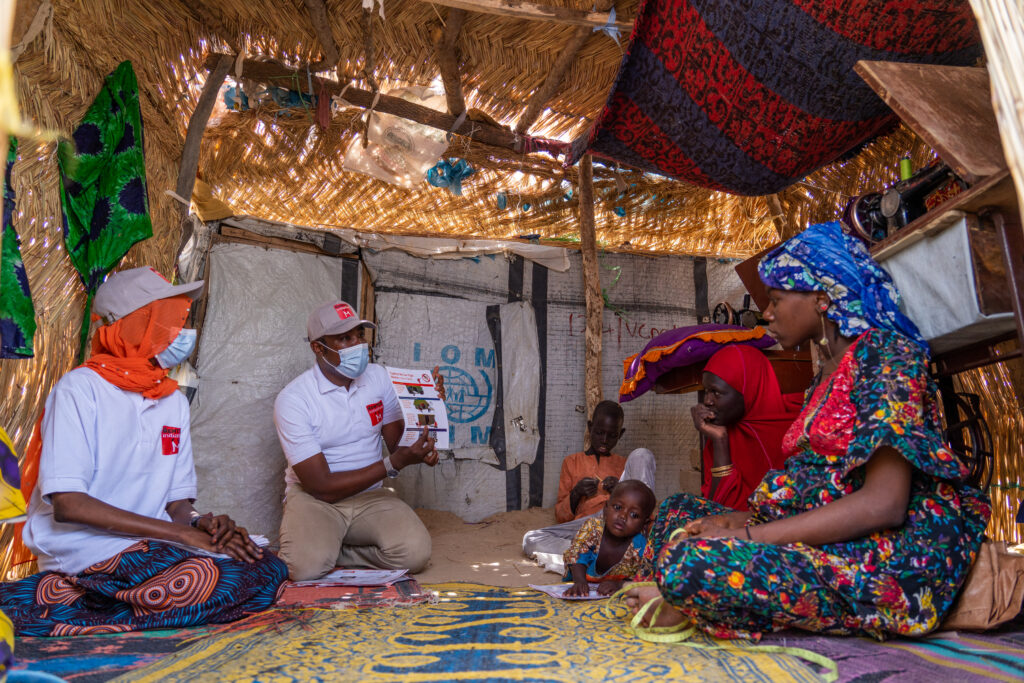
In full accordance with WHO methodology, MENTOR arranged and trained 41 representatives of key stakeholders. Knowledge of IRS and best-practices increased substantially in the groups as a result, developing sustainable capacities and expertise. A further 495 IRS workers were trained including full practical sessions in IRS procedures and methodology, and were briefed on and committed to MENTOR’s Code of Conduct and safe-guarding/PSEA policies. The IRS teams were selected in close coordination with SMEP Focal Points and camp management, according to WHO recommendations regarding community, literacy, age, health, and reputation. Teams consisted of 5 spray operators, 5 mobilizers/recorders, and 1 supervisor. All members were outfitted with full Personal Protective Equipment (PPE), and took responsibility for adhering to all required safety, standards, and conduct, proper recording/reporting practices, as well as assisting house owners to prepare the rooms for spraying and maximise the impact once completed.
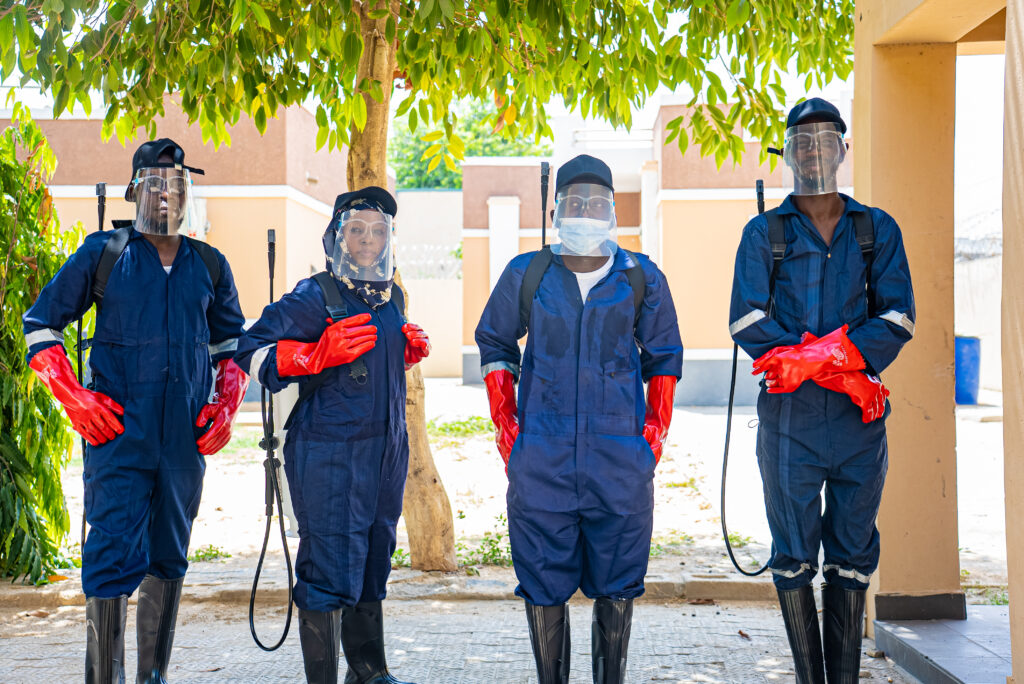
Over the course of nearly two months, the collective efforts of all parties involved managed cover a total of 413,000 people (compared to the original target of 386,538), thus MENTOR achieved 107% population coverage. Acceptance rates of IRS within the IDP population was exceptional, highlighting the importance of effective, local-knowledge driven IEC/BCC campaigns and integrated delivery/reporting teams, maintaining public confidence and buy-in, and ensuring that preventative measures and good hygiene practices continue beyond the IRS campaign.
In order to evaluate the impact of IRS on vector density, Pyrethrum Spray Catches (PSC) are being carried out in three camps that received IRS and one control camp in Maiduguri. The PSC (also referred to as flitting) is a useful mosquito sampling method for MENTOR’s routine monitoring and evaluation (M&E). Throughout the process MENTOR is careful to engage with the community, not only to explain what is being done but also to take the opportunity to deliver the IEC that is conducted in line with the IRS campaign. PSCs are an unusual activity that tends to generate interest from the community and so this offers a great opportunity to achieve strong community engagement and sensitization. With IRS campaigns now having been completed by mid-July, MENTOR will continue to coordinate with the health cluster in Borno in order to receive regular updates on malaria cases in areas where IRS was conducted throughout the rainy season. This will allow a comparative analysis to be made with previous years where no IRS was conducted to assess the impact that the intervention has had in the communities that have been sprayed. There are certain aspects of this which will complicate analysis, the largest being that malaria data is recorded by LGA and not by camp or by ward, this means that we will not be able to do like for like area comparisons because not all of a given LGA has been sprayed. However, working closely with health partners MENTOR aims to receive data from specific facilities in areas that have received IRS to allow for a more targeted form of analysis.
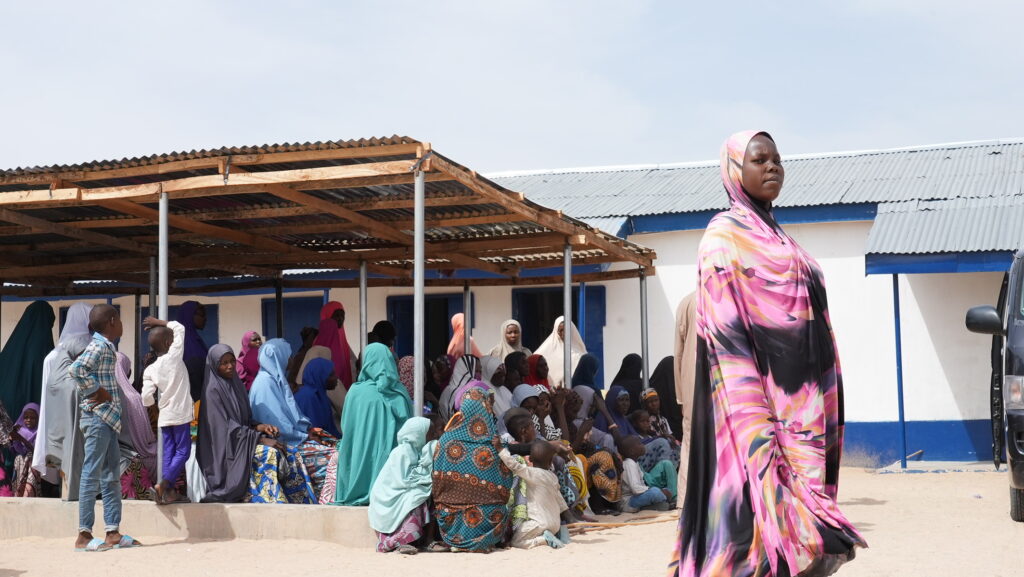
This was the first IRS campaign that has been conducted in Borno state, a highly insecure context with significant needs for effective disease control interventions. Despite challenges, this was a highly successful campaign reaching over 413,100 IDPs and conflicted affected individuals, with 99% coverage and 99% acceptance. This includes 123,433 IDPs across the 12 camps and 59,316 conflict affected host community members in Monguno, as well as a further 230,351 IDPs living in camps in Maiduguri and Jere. These beneficiaries will benefit from a WHO recommended malaria prevention tool throughout the 2021 rainy season, reducing not just malaria morbidity and mortality but also reducing the burden on a strained health system, and improving the day-to-day dignity and well-being of beneficiaries.
This program was a significant and collaborative effort involving many state and national ministries such as the NMEP, SMEP, SPHCDA, SEMA, NEMA, and the MoH as well as support from INGOs and UN bodies such as UNHAS, WFP, PUI, INGO Forum, WASH and Health clusters, camp management, and many others.
MENTOR will continue to evaluate the impact of its intervention with its entomological monitoring and evaluation of epidemiological data throughout the 2021 rainy season. MENTOR will be conducting another IRS and IEC/BCC campaign across Borno state in 2022.
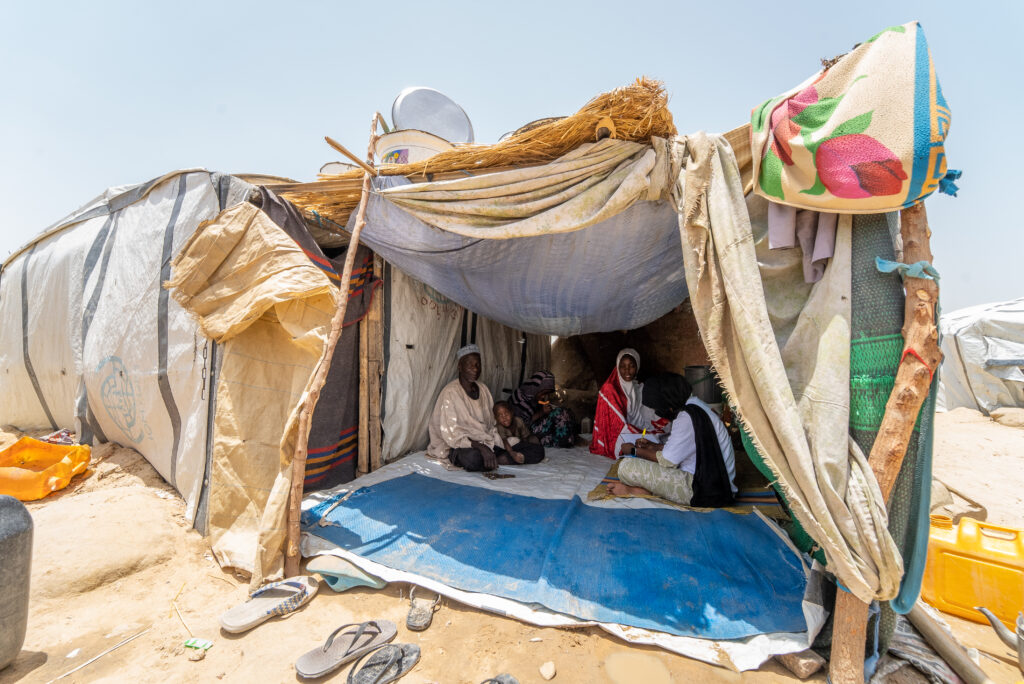
To read the whole report, click here: The MENTOR Initiative Indoor Residual Spray & IEC 2021

